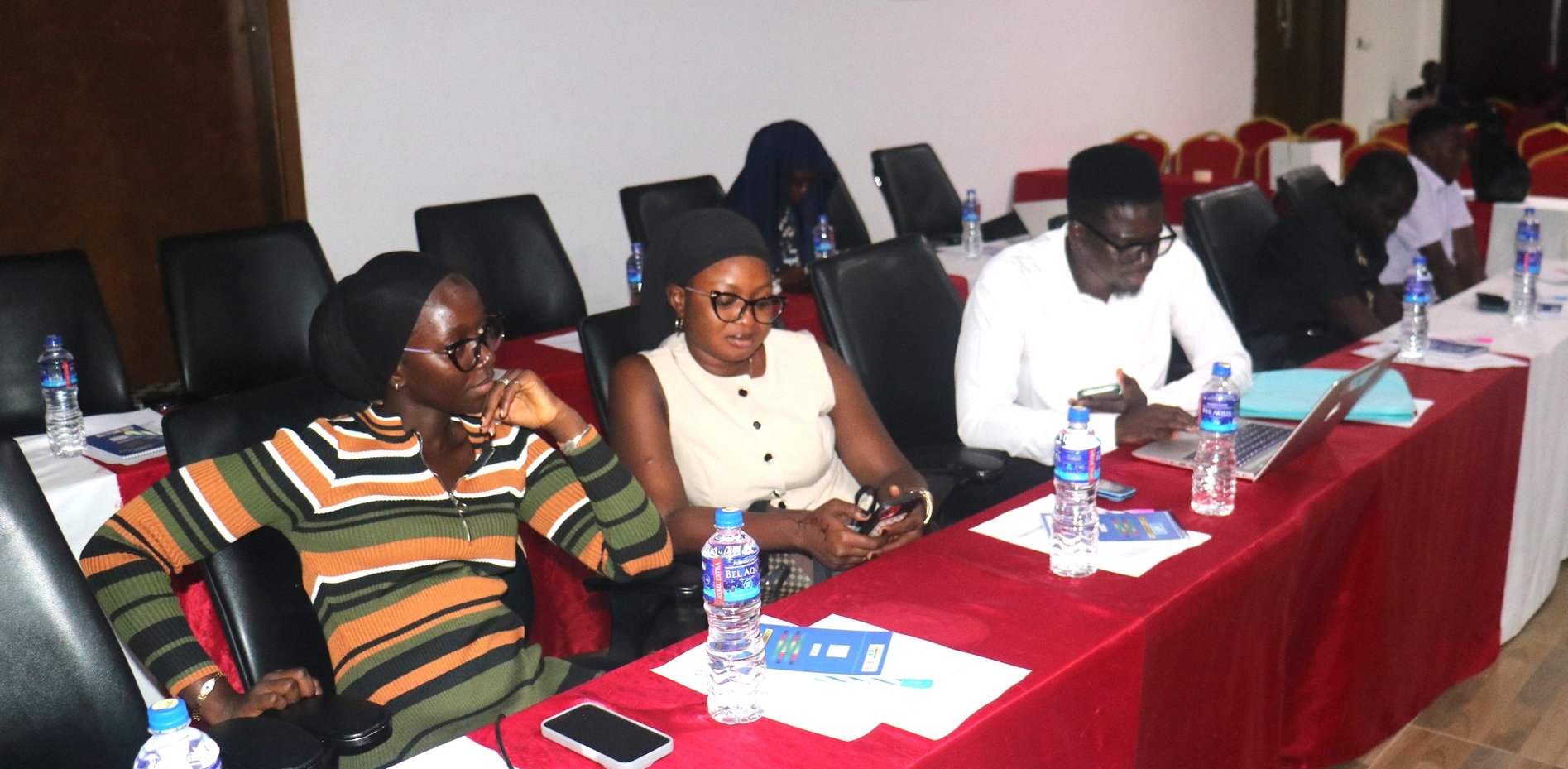Gambiaj.com – (BANJUL, The Gambia) – When reporter Jankey Ceesay arrived for a training session on Tuesday, she did not expect it to reshape how she views her role in storytelling. Ceesay, who writes for The Point newspaper, has long covered politics, governance, and social issues, but this was her first training dedicated to ethical reporting on persons with disabilities.
“This training comes at a very crucial time when the role of the media is being tested during elections,” she said.
“It is also my first time attending a session focused on disability reporting. I find it very important because it will help us amplify the voices of people living with disabilities, who are often left out of the national conversation.”
Ceesay is among 40 Gambian journalists participating in a two-day capacity-building workshop organized by the Gambia Press Union (GPU) with support from UNESCO through the National Commission for UNESCO (NATCOM).
The training covers hate speech, information disorder, artificial intelligence, and disability inclusion, with the goal of strengthening ethical standards and professionalism across the media sector.
While discussions on hate speech and misinformation are common in journalism training, this initiative stands out for its emphasis on disability reporting, a field often overlooked despite its central role in promoting equity and inclusion.
Sheriff Saidykhan, vice president of the GPU, reaffirmed the union’s commitment to promoting journalism that reflects the full diversity of Gambian society.

He highlighted that the revised Cherno Jallow Charter of Ethics for Journalists now includes dedicated guidelines on reporting about persons with disabilities, a milestone for inclusive media practice.
“Disability reporting requires a high degree of professionalism,” Saidykhan noted. “Its inclusion in the revised Charter is intended to ensure visibility and inclusivity for persons with disabilities and to end all forms of stereotypes.”
He further pointed to the growing influence of artificial intelligence in journalism and urged practitioners to use such tools responsibly while safeguarding accuracy and fairness.
Speaking on behalf of the Secretary General of the Gambia National Commission for UNESCO, Fatou Jallow commended the GPU for integrating disability inclusion and AI ethics into the training curriculum.
She said UNESCO remains committed to supporting media development as part of efforts to strengthen democracy and social cohesion.
“The inclusion of disability reporting in this training is particularly commendable,” she said. “It ensures that persons with disabilities are represented fairly, respectfully, and accurately in the media.”
She encouraged participants to apply the knowledge gained to enhance their reporting and contribute to a more informed and tolerant society.
For participants like Ceesay, the training is already making an impact.
“People with disabilities have stories, challenges, and dreams just like everyone else,” she reflected. “It’s our responsibility as journalists to tell those stories with dignity and fairness.”
The training continues on Wednesday with expert-led discussions on hate speech, artificial intelligence, and the evolving ethical standards of journalism in The Gambia.










